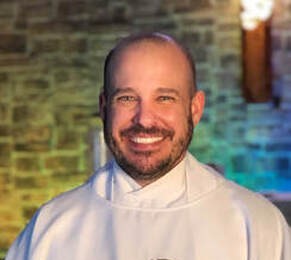As the world started to experience the devastating impact of the global pandemic in 2020, there was more than just a virus stirring throughout this nation. Prior to that year, healthcare bans for trans people weren’t even a blip on the radar of political action. Today, currently about 90 bills are being pushed by lawmakers in the United States which prevent trans young people from receiving trans-affirming healthcare. These are among the over 300 anti-trans bills that deal with this topic and issues beyond healthcare.
Two anti-trans healthcare bills have already been signed into law. The new anti-trans laws in Utah and South Dakota both ban age-appropriate trans-affirming health care for people under the age of 18. Some proposed bills in other parts of the country seek to ban affirming healthcare for trans people under the age of 26, such as a bill currently proposed in Oklahoma.
Religious leaders are often the people who are stirring up the energy behind these bills and pushing lawmakers to strip away the rights of transgender young people. As a faith leader myself, I feel that this is wholly antithetical to the calling of service that leads people to religious leadership. As a trans person, my heart breaks for the young people in our country who are either being denied care, or who have already begun to medically transition and are now facing the possibility of involuntary medical detransition.
When we talk about gender-affirming healthcare for young people, what exactly are we talking about? We are speaking about age-appropriate healthcare, which provides necessary—and often lifesaving—psychological and medical intervention. In the case of transgender youth, this type of healthcare often involves therapy with a professional who affirms the young person’s identity and, in some cases, hormonal interventions. Some young trans people are prescribed puberty-blockers, which will delay the onset of puberty and give these young people time to grow and mature emotionally, before making decisions about other aspects of medical transition. Puberty-blockers are commonly prescribed to non-trans young people to treat signs of puberty, if they occur too early in a child’s life.
Non-trans young people who need to delay puberty are not intended to be impacted by these legal measures. Only transgender young people are prevented from taking these medications. Another aspect of gender-affirming healthcare is appropriately limited to older teens who might want to undergo chest-reconstruction surgery.
Fear mongering about trans-affirming care has led many to claim that surgeons are performing genital procedures on young children. This is not the reality of trans-affirming healthcare for minors. Trans activists are not advocating for these types of surgeries on bodies that are not finished developing and growing. What we want is for young people to have the ability to receive age-appropriate care, and in some cases delay the onset of irreversible secondary sex characteristics that might match their assigned sex at birth but do not match their gender identity.
As a faith leader, it is not my role to dictate what someone can or cannot do medically. And I believe that this should also not be the role of politicians. Decisions about medical care for minors should be the purview of the young person, the young person’s parents or guardians, and this person’s medical providers. This should be true for all young people, trans or not.
From a pastoral standpoint, my primary concern is twofold. I worry about young people not getting the care and treatment they need. I also worry what the denial of that care might do to their emotional, mental, and spiritual development. As a trans person, I know the value of being taken seriously with regard to one’s gender identity. I remember what it felt like to have begun the transitioning process as a young person: for me, it was absolutely lifesaving. This is the story I continually hear from other trans people, trans-affirming medical care saves people’s lives.
When young people are denied access to lifesaving care, we risk that the message they receive is that their lives are not worth saving. Young people deserve better than this. Right now, trans youth are being used as political pawns. They need the help and support of trans elders and allies. They need to know that not all faith leaders are against them, and in the case of many young trans people, they just need a little bit of time to grow up and not have to endure a body that is changing in ways that are anathema to their identity.
Rev. Jakob Hero-Shaw | Coordinator, The CLGS Transgender Roundtable



